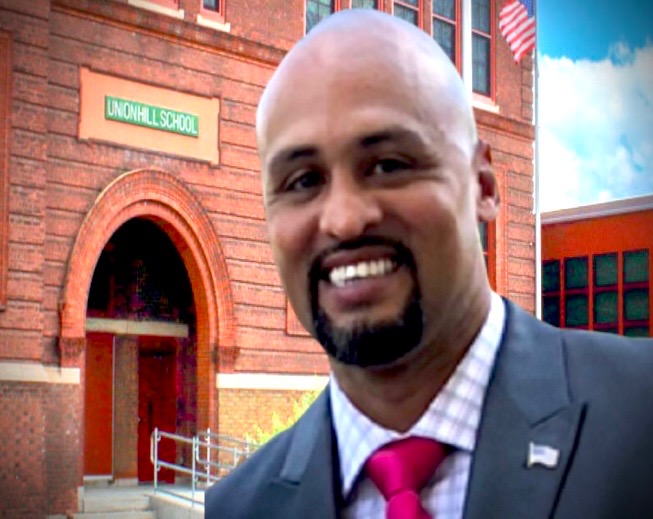
Creating a school-wide culture that supports and celebrates math learning can make all the difference in accelerating math achievement. At Union Hill School, we have a diverse population that includes a large percentage of transient students, yet we’re still able to get the whole school community on the same page when it comes to math. Here’s how we do it.
1. Establishing a routine
In the first two weeks of school, I want our teachers to focus on building relationships with their students and establishing a routine. We may shake things up down the road to give students the best possible schedule for them, but in those earliest days, students need to get reacclimated to school. They need to understand what they are trying to accomplish throughout the school year, and the work it will take to get there.
Every morning begins with breakfast, then we jump right into a whole-class read-aloud to kick off our English language arts block. As part of our math routine, every student begins their 90-minute-long math block with 20 minutes of ST Math, software that asks students to explore math concepts through spatial-temporal puzzles that require them to move a penguin, JiJi, from one side of the screen to the other.
In addition to daily, focused conceptual math practice, this routine ensures that our students share a common language and frame of reference regarding math.
2. Instructional leadership focused on growth
As a principal, I don’t get to be in the classroom all the time to see firsthand how things are going. Are students struggling? Are they engaged? Are they working together, or are they all in their own little worlds trying to figure things out alone? To get a peek inside the classroom, I do visit them regularly and check the ST Math progress. For the most part, our teachers appreciate it because they value the feedback.
FETC 2023
The Future of Education Technology® Conference takes place live and in-person Jan. 23-26, 2023, in New Orleans. Register now!
We also have regular conversations about student progress in our instructional leadership meetings. The important thing here is not that teachers and students are meeting some pre-defined expectations, but that they are making progress. Growth is the most important thing that we want to see, especially after the two years of disruption our school community has been through.
Most of our professional development this year took place in-house during professional learning communities and faculty meetings devoted to educator learning. We stress the importance of our culture not just in math but throughout the school community with everything we do.
3. Fun & competition
I think anything is fun if it’s a competition, so in March we held a contest called ST Math March Madness. We noticed that some of our math classes were just not progressing in the program as much as we wanted, so we launched a competition and told them the class that completed the most puzzles would win an ice cream party. I’ll tell you, some of those slower progress classrooms really kicked it up a notch!
In addition to the class party, we also celebrated individual successes. I gave out Celtics posters (all my students know how much I love the Celtics!) and frisbees to use at recess to the students who had completed 100% of their lessons. We also gave basketballs to students who had otherwise been excelling in math and wrote their names on them so they could be in charge of them at recess.
More from DA: How the 4-day school week model can increase teacher retention and satisfaction
We have another program called “365Z” that is solely based on kindness and caring for others. The whole school was tasked with finding an activity to make our school a much kinder environment. The students chose to recycle water bottles, so now students go around each week collecting all the bottles from each class to recycle.
We also use fun, interactive displays in classrooms around the school to motivate students. For example, teacher Heath Squire has a paper mountain on one of his walls and each student gets their own paper JiJi to place on it. As students complete math lessons, their penguin moves up the mountain.
In the end, building a math culture is a lot like building a school culture. It’s all about students taking ownership. This is their time, their school. We can guide them, but they have to own it themselves.
Ishmael Tabales is the principal at Union Hill Elementary School in Worcester, Massachusetts. He can be reached at email [email protected].







